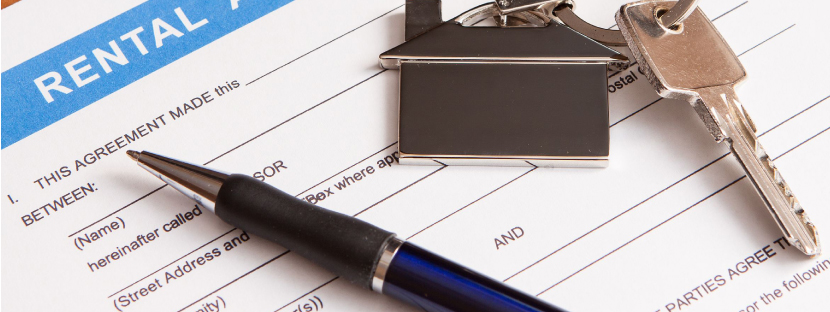
Listing property on Airbnb is not only an attractive way for individual homeowners to make extra money, but may be an excellent way for you as a property owner to maximize your profit through short-term rentals. All over the country, investors are grabbing up property they do not intend to live in, solely for the purpose of providing lodging for short-term renters. If jumping on this bandwagon appeals to you, then there are 3 key things you should consider before buying property specifically to list on Airbnb or similar sites.
The Lure Of Airbnb For Investors
 At first glance, the economics of renting property for short-term occupancy appears compelling. When you lease out property for a term such as 12 months, prevailing rates in the area and maybe even legal limits set down by law for rent controlled or rent stabilized property impact how much you can ask.
At first glance, the economics of renting property for short-term occupancy appears compelling. When you lease out property for a term such as 12 months, prevailing rates in the area and maybe even legal limits set down by law for rent controlled or rent stabilized property impact how much you can ask.
High per-diem short-term rental rates for tourists, attendees at special events, or even relocated corporate hires can bring in monthly totals that exceed what you would get from a longer term lease. In cities such as Boston, where there is a great need for executive housing or in New York or Chicago where special events are commonplace, you can expect steady demand for your property.
While there is no direct data from Airbnb to spell out the popularity of the trend of renting out units or whole properties for short-term occupancy, studies by groups such as the American Hotel & Lodging Association (AHLA) suggest that over 80% of the company’s income in the U.S. comes from rental of multiple units or even whole apartment complexes owned by one host. Companies such as LearnAirbnb and Pillow are springing up to help investors who buy property with plans of cashing in on the new home sharing trend.
What To Watch For As An Investor
While there is money to be made from renting out multiple units to Airbnb, there are several downsides as well.
First, the economics may not be as they seem. Counterbalancing the high rent potential and the demands of property up keep and supplying it with linens and furnishings, maintaining the pool and grounds, not to mention hiring a cleaning service to prepare the place for high volume rental turn-over. When you sublet your property, you may have increased costs for homeowner’s insurance and property taxes. If you have vacant spells without rentals, you may not even break even some months as your mortgage and your upkeep costs continue. In some areas, your property may face stiff competition from comparable listings, so you must provide high-levels of amenities, cleanliness, and ongoing upkeep that cut into your profit.
Second, laws in some areas limit your ability to offer short-term rentals. Now that Airbnb has been in existence for nearly nine years, cities around the country are putting new regulations on short-term rentals that favor a “One Host, One House” policy. Cities such as Portland, Austin, and Denver do not want to eliminate the ability of homeowners to make money from renting out their home. However, citing examples of neighborhood disruption and estimating the impact on the housing supply when leasable property is taken out of circulation, is leading cities to ban third party rentals by property owners to vacationers. Some places, such as San Francisco, prohibit short term rentals on a property that an owner does not occupy as their primary residence.
Third, your options for offering sublet property under the radar are becoming more limited, while penalties are high. Many property owners have successfully offered illegal short-term rentals by advertising them on Airbnb or Craigslist and are only questioned when a disgruntled neighbor reports a problem to local authorities. Now, in many jurisdictions, such as Honolulu Hawaii, Airbnb is required to post a permit number or tax ID on the site. Private monitoring companies as well as software owned by municipalities, such as Boston and Denver, can quickly detect illegal rentals.
Depending on the jurisdiction, illegal subletters, especially property owners, face substantial fines for failing to have the proper permits, displaying their ID number, or operating illegal sublets. In Denver, the fees start at $150 for failing to have a license and $999 per occurrence for either of the other offenses, while in Honolulu Hawaii, current fines of $1,000 a day are the current norm as some lawmakers continue to argue for stiffer penalties.
 Besides penalties for municipalities, investors who sublet risk having insurance claims not paid and policies canceled. A property owner needs additional insurance beyond homeowners insurance to cover the risks of leasing property; using the property for short-term rentals requires either an endorsement for occasional rentals or a separate business insurance policy for more frequent rentals to cover the insurance companies potentially greater risk.
Besides penalties for municipalities, investors who sublet risk having insurance claims not paid and policies canceled. A property owner needs additional insurance beyond homeowners insurance to cover the risks of leasing property; using the property for short-term rentals requires either an endorsement for occasional rentals or a separate business insurance policy for more frequent rentals to cover the insurance companies potentially greater risk.
If you are still eager on taking advantage of the Airbnb phenomenon, it’s worth your investment to take the time to carefully research the local laws, make sure the economics work out in your favor, and all of your protection and liability bases are covered.
